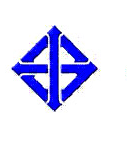
hailand certification
There are 60 categories of compulsory certification products in the Thai government, covering 8 fields, including electrical equipment and accessories, medical equipment, building materials, consumer goods, vehicles, PVC pipes, LPG gas containers and agricultural products. In addition, other types of product certification are voluntary certification. Voluntary certification can only be applied by local manufacturers.
The Industrial Product Standards Act authorizes the Thai Industrial Standards Institute (TISI) to be responsible for the certification of Thailand. TISI is both a government authority for compulsory certification in Thailand and a standards development and regulatory body, a certification body, and a laboratory accreditation, training and registration body. It is noteworthy that Thailand does not have a non-governmental mandatory certification body.
Product Range
For electrical and electronic products, TISI certification covers a total of 42 categories, only the following list:
TIS 4 Part 1-2529 (1986) incandescent lamp 1 May 1987
TIS 23-2521 (1978) Ballast Fluorescent Lamps, April 1, 1979
TIS 344-2549 (2006) Tubular Fluorescent Lamps and Starter Supports July 13,
TIS 366-2547 (2004) Irons: Safety requirements December 26, 2005
TIS 934-2533 (1990) A. C. Fan: Safety Requirements December 25, 1991
TIS 956-2533 (1990) Fluorescent lamps: Safety requirements September 25, 1991
TIS 1039-2547 (2004) Rice cookers: Safety requirements February 21, 2006
TIS 1389-2539 (1996) drum dryers: safety requirements March 23, 2002
TIS 1462-2548 (2005) Household washing machines August 21, 2007
TIS 1509-2547 (2004) Electric fryers: safety requirements April 27, 2006
TIS 1693-2547 (2004) Hot Water Heater: Safety Requirements April 23, 2006
TIS 1773-2548 (2005) Safety requirements for microwave ovens: 21 August 2007
TIS 1955-2542 (1999) Lighting and Similar Equipment: Radio Interference Restriction 11 August 2002
TIS 1985-2549 (2006) Skin or hair care equipment: Safety requirements July 14, 2008
TIS 2134-2545 (2002) Environmental Requirements for Energy Saving of Air Conditioners March 11, 2005
TIS 2186-2547 (2004) Household refrigerators: environmental requirements: energy saving December 23, 2006
Note: Please refer to the mandatory product list.
application process
1. The customer prepares samples and information to be submitted to Nslab
2.Nslab submitted the samples and data to the Thailand cooperative laboratory for testing
3. The experiment is carried out and the factory is tested at the same time
4. After the test and inspection, TISI issues the certificate
Certification mark
TISI certification
other information
Technical information: Voltage frequency AC 220V / 50Hz, plug TIS 166-2549
Mandatory: mandatory + voluntary
Certificate valid for 3 years
Auditing requirements: the need for the first inspection and annual inspection
Requirements: The holder must be a local registered company or a local agent
Energy Efficiency Certification
Introduction to Certification
Thailand's energy efficiency regulatory bodies include the Electricity Generating Authority of Thailand (EGAT) and the Department of Alternative Energy Development and Efficiency (DEDE).
Product Range
Covering 16 categories of products, including: air conditioning, washing machines, refrigerators, ballasts, fans, rice cookers, lamps, Kettle, and so on.
application process
1. Customers prepare samples and information, and submit the application to Nslab.
2. Nslab submit samples to the laboratory test, the test is completed and submitted to the certification body certification.
3. The certification body audit report issued by the energy efficiency certificate.
Logo requirements
Energy Efficiency Certification
other information
Technical information: Voltage frequency AC 220V / 50Hz, plug TIS 166-2549
Mandatory: mandatory + voluntary
Certificate valid for 3 years
Factory inspection requirements: no requirements
Requirements: The holder must be a local registered company or a local agent
NTC wireless certification
Introduction to Certification
The National Telecommunication Commission of Thailand (NTC) is the body that regulates wireless and telecommunications regulations in Thailand. All wireless and telecommunications products must be licensed by the NTC before entering the market. You need to register your company NTC licensee and provide the vendor code. According to the product category is divided into three kinds of authentication mode:
1.A (Class A Approval): The product must be NTC designated laboratory testing and NTC data required to get the registration number and certification.
2.B (Class B Approval): The authentication procedure is the same as that of the Class A product category. It can only be used for certification of foreign countries such as FCC, RED, and the registration number and certificate.
3. SDC Declaration of Conformity (Supplier's Declaration of Conformity): This part of the product certification for the voluntary model, the local representative of Thailand by the customer to fill out the SDoC form together with the technical documents sent to the NTC for reference.
Product Range
All wireless and telecommunications products
application process
1. The customer prepares samples and information and submits the application to Nslab
2.Nslab test, the test is completed after the test report issued
3.NTC audit documents, no problem after the issuance of certificates
4. Importer NTC signs affixed
Label requirements
NTC wireless certification
other information
Technical information: Voltage frequency AC 220V / 50Hz, plug TIS 166-2549
Mandatory: mandatory
Certificate validity period: no validity period
Factory inspection requirements: no requirements
Requirements: The holder must be a local registered company or a local agent






